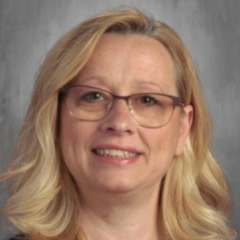Welcome to Ms. O’Connell’s Page
I currently teach 3rd Grade, as well as 2nd Grade Science and Social Studies. Listed below you will find more information, including brief descriptions of the major academic topics we will cover in each class.
Grade 3 Mission Statement
In Third Grade students are encouraged to excel as citizens, to be creative, practice perseverance, and use critical thinking for problem solving. We embrace technology and the use of collaboration within cooperative groups in order to promote 21 st century learning. Woven throughout each moment of the day is the commitment to the classical Catholic concept of education and helping each student believe in God and themselves.
Reading/Literature
In Third Grade students explore reading through various genres, such as realistic fiction, biographies, informational fiction, poetry, drama, folktales, fantasy, and argumentative text. Throughout each story and genre, we make relevant connections to demonstrate understanding while finding text evidence. We determine the central theme or message, reveal key details, identify tone, setting, and character analysis. Students describe how the traits of characters contribute to the plot while determining meaning of words or phrases within the text. Students tap into historical/cultural context and background knowledge to compare, contrast, and reflect on the plots of stories.
Writing, Grammar, Spelling
While reading each story we strengthen our phonological awareness by decoding and encoding multi-syllable words, identify common prefixes and suffixes, and read irregularly spelled words. Fluency is strengthened by reading the appropriate level text with purpose and understanding while reading orally with expression at the appropriate rate. Grade appropriate vocabulary is introduced and used within writing prompts to strengthen understanding of meaning. Third Grade students write opinion pieces on topics supporting a point of view, write informational texts to examine a topic, and write narratives drawing from real-life experiences. Through these writings, students practice proper conventions of the English language, using proper sentence structure, spelling, and the grammatical rules of the English language.
Handwriting
Cursive writing is practiced throughout the school year. We begin the school year using manuscript writing and then initiate cursive writing of letters and numerals while practicing proper writing positions, shape, size, spacing, and slant within the first marking period. Students are expected to use cursive writing exclusively by the second marking period when writing essays, personalized letters, invitations, notes, and other classroom work.
Mathematics
Third Grade students use place value to perform multi-digit arithmetic; solve problems involving multiplication and division; multiply and divide within 100; solve problems with up to four operations; explain patterns in arithmetic; understand fractions as numbers; reason with shapes and their attributes; solve problems involving time, liquid volume and mass; represent and interpret data; explore concepts of area and perimeter. We use a hands-on and realistic approach to solving mathematical problems by connecting skills to the real-world application. Students are encouraged to use a variety of strategies to solve problems and explain and/or show their process.
Science
Students in Third Grade are introduced to a variety of scientific topics such as: Motion and Stability; Forces and Interactions; Molecules to organisms within life cycles of plants and animals; Ecosystems; Social Interactions and group behavior of animals which help survival; Inheritance and variation of traits of plants and animals; Influences of Environment; Weather patterns; Engineering design exploring various solutions.
Social Studies
Students learn about the importance of being part of a community by studying Civics, Government, and Human Rights. We learn basic map skills and Geography while making connections to Environmental Issues and people who live across the globe. We also tackle topics related to Economics, Innovation and Technology, History, Traditions and Culture. Through our lessons we promote inclusivity and tolerance by embracing diversity.
